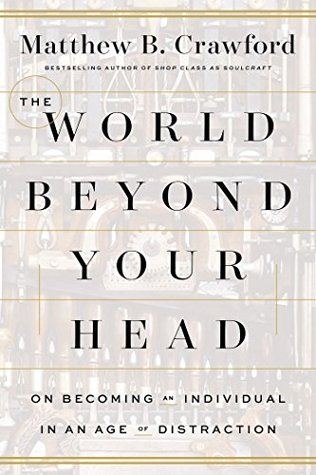More on this book
Community
Kindle Notes & Highlights
Read between
June 26 - September 19, 2021
Iris Murdoch writes that to be good, a person “must know certain things about his surroundings, most obviously the existence of other people and their claims.”6
We are to take a detached stance toward our own experience, and subject it to critical analysis from a perspective that isn’t infected with our own subjectivity.9
What is at risk, when we start revisiting the question of how we encounter things, is the whole chain of forgotten polemics by which a very partial view of the human person got installed in our self-understanding: the anthropology of modern liberalism.
As this language suggests, epistemic individualism is a moral ideal, at least as much as it is a doctrine about how we acquire knowledge.
epistemic self-responsibility.
It follows that when we become skilled in some particular domain, we begin to see and feel things we otherwise wouldn’t see or feel.
We live in a world that has already been named by our predecessors, and was saturated with meaning before we arrived. We find ourselves “thrown” into this world midstream, and for the most part we take over from others the meanings that things already have. How are we initiated into these meanings?
The absence of such experiences may help us to understand why the long-term unemployed often suffer self-doubt, as do the idle adult children of wealthy parents.
This is a deeply conformist line of thought. It leaves little space for beautiful folly, or for the world-making activity of the artist or eccentric.
One effect of this trajectory has been the clinical explosion of depression (as well as a shift in how we understand our unhappiness). Once upon a time, our problem was guilt: the feeling that you have made a mistake, with reference to something forbidden.
The project of becoming a grown-up demands that one bring one’s conflicts to awareness; to intellectualize them and become articulate about them, rather than let them drive one’s behavior stupidly. Being an adult involves learning to accept limits imposed by a world that doesn’t fully answer to our needs; to fail at this is to remain infantile, growing old in the Mickey Mouse Clubhouse.
Recall the quotation from Simone Weil: “Something in our soul has a far more violent repugnance for true attention than the flesh has for bodily fatigue. This something is much more closely connected with evil than is the flesh. That is why every time that we really concentrate our attention, we destroy the evil in ourselves.”
“Ideology” could be taken (somewhat narrowly) to mean an idea that happens to line up with the material interests of those who espouse it.
Yet those who work within a craft tradition cannot dogmatically identify the good with the old: a living tradition does not consist of a set of static truths passed down.
As we have seen, the dialectic between tradition and innovation allows the organ maker to understand his own inventiveness as a going further in a trajectory he has inherited. This is very different from the modern concept of creativity, which seems to be a crypto-theological concept: creation ex nihilo. For us the self plays the role of God, and every eruption of creativity is understood to be like a miniature Big Bang, coming out of nowhere. This way of understanding inventiveness cannot connect us to others, or to the past. It also falsifies the experience to which we give the name
...more
The point isn’t to replicate the conclusions of tradition (here, the use of oak), but rather to enter into the same problems as the ancients and make them one’s own. That is how a tradition remains alive.
The temptation in doing polemics is to offer partial truths to counter other partial truths.
This can inspire wonder and gratitude: the most creditable of religious intuitions is available within a this-worldly ethics of attention.
There is an obvious strangeness here: from a beginning point that is radically self-enclosed (Descartes’s “I think”), our task is to arrive at “a view from nowhere” (to use the philosopher Thomas Nagel’s apt phrase) in which there remains no trace of the knower himself.


